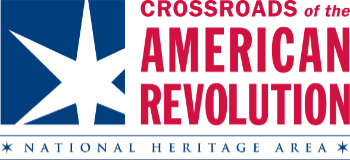Biography People
John Hart Full Biography
I was baptized at the Maidenhead Presbyterian Church in 1713 several years after my parents Edward and Martha (Furman) Hart migrated to Hopewell, next to Maidenhead, from Newtown, Long Island. My father was one of five brothers who came to Hopewell, so I grew up among a number of relatives and related families from Long Island. About 1739, I married Deborah Scudder and purchased a 193 acre farm that became our home for the rest of our lives. The first of our thirteen children was born on October 16, 1741. My father and I both got caught up in land disputes that required us to purchase our lands twice. This was a time of great unrest over land titles that led to hostile confrontations between Proprietors and farmers. Because the Royal government did not help us, many farmers joined extralegal militias to protect each other. Although not happy about it, we paid the necessary sums to keep our land while some of our neighbors simply packed up and left the area. On a happier note, in August 1747, I donated a lot from my land to some local Baptists who were looking for a place to build their meeting house. We were not Baptists so this donation was seen by them as a truly friendly act. In 1750, I was elected as one of two Hunterdon County freeholders from Hopewell. This was the highest elected office in the town and my election required support from Presbyterians and Baptists, as well as the many families who had migrated from Newtown, Long Island. In 1755 I was appointed a Justice of the Peace by our colonial governor.
In 1761, I was elected to New Jersey’s Assembly under the British colonial government and served for ten years. I also became one of the judges on the Court of Common Pleas in 1768. As the Revolution took form, even though I had served the colonial government, I supported the protest movement and was appointed to the local Committee of Safety and the Committee of Correspondence. By this time the people of Hopewell often called me “Honest John” and looked to me as a leader in many aspects of life. I was humbled by their expressions of respect.
When New Jersey’s Provincial Congress organized in 1775 to replace the colonial legislature, I was elected as a member and served on committees dealing with finance and military matters. I was chosen to represent New Jersey in the Second Continental Congress as part of a delegation that changed from opposing the idea of independence to supporting it and I was one of the signers of the Declaration of Independence.
In August 1776, I left the Continental Congress because I was elected Speaker of the New Jersey General Assembly that had been formed after New Jersey declared its independence as a new state. I also served on the Council of Safety that had powers to run the state when the assembly was not in session or in times of emergency. I served the new state in a variety of leadership roles.
When the British army pursued Washington’s retreating army through New Jersey in December 1776, I was then in my sixties and was forced to leave my home and hide out in the nearby Sourland Mountains to prevent capture by the British forces who were looking for leaders of the rebellion. My farm, like many of the farms in Hopewell, was raided by the British and Hessian soldiers and suffered damage. The defeat of the British at Trenton and Princeton greatly reduced the threat of capture and I returned home.
In the summer of 1778 after the Continental army left Valley Forge and crossed into New Jersey at Coryell’s Ferry, now Lambertville. The 12,000 or so soldiers of the American army camped on our farm and the farms of neighbors during several days of rainy weather from June 22 to 24. Two of my sons were among the local men who helped guide the army through our region. On at least one occasion I hosted General Washington for dinner. Then on the evening of June 24, General Washington held a council of war at the nearby house of our neighbors the Stouts, but then occupied by the family of John Price Hunt. He drew plans for the confrontation that occurred on the June 28 at Monmouth with the British army that had left Philadelphia and was marching across the State to New York.
Several months later, two days after returning home on November 7, 1778 from the Assembly meeting in Trenton, I felt too ill from an attack of kidney stones to return to it. I suffered for over six months from the pain and died on May 11, 1779. I did not live to experience the victory that secured the independence I had put my life on the line for in 1776.
FURTHER SOURCES
Hammond, Cleon E. John Hart: The Biography of a Signer of the Declaration of Independence. Newfane, Vermont: Pioneer Press, 1977. There have been a number of inaccuracies in earlier biographical sketches that are corrected in this well researched and written account of his life. Several uncertainties about his life are also fully explored.
